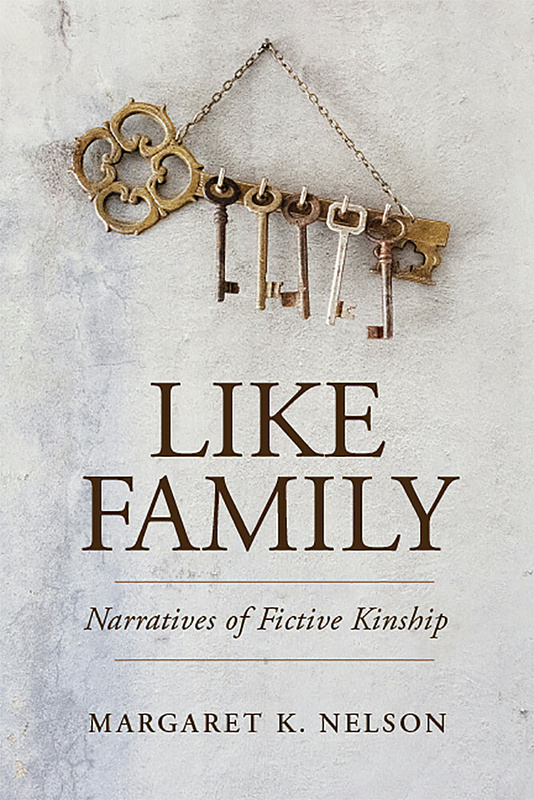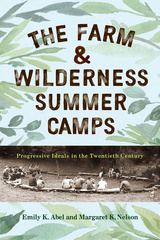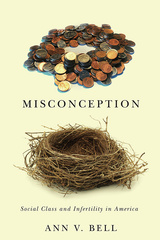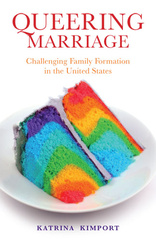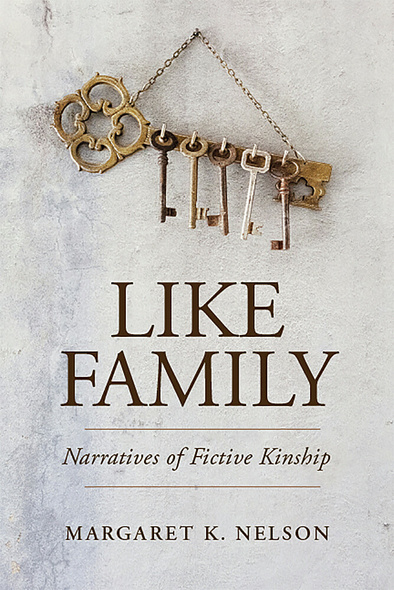
244 pages, 6 x 9
15 tables
Paperback
Release Date:17 Apr 2020
ISBN:9780813564050
Hardcover
Release Date:17 Apr 2020
ISBN:9780813564067
For decades, social scientists have assumed that “fictive kinship” is a phenomenon associated only with marginal peoples and people of color in the United States. In this innovative book, Nelson reveals the frequency, texture and dynamics of relationships which are felt to be “like family” among the white middle-class. Drawing on extensive, in-depth interviews, Nelson describes the quandaries and contradictions, delight and anxiety, benefits and costs, choice and obligation in these relationships. She shows the ways these fictive kinships are similar to one another as well as the ways they vary—whether around age or generation, co-residence, or the possibility of becoming “real” families. Moreover she shows that different parties to the same relationship understand them in some similar – and some very different – ways. Theoretically rich and beautifully written, the book is accessible to the general public while breaking new ground for scholars in the field of family studies.
In this remarkable book Margaret Nelson takes us to a place so familiar, yet overlooked, to relationships that persist over time. Like Family provides a mirror to intimate, long-lasting ties that live on through thick and thin. Margaret Nelson has a remarkable gift for uncovering the bewilderment of intentional relationships.
Margaret Nelson has a strong reputation as a writer and scholar, and writes about how even biological family is chosen these days. Like Family will contribute to pushing intellectual activity, research, and theory forward.
This unique and richly-detailed study brings into view three distinct types of family-like arrangements that are missing in current accounts of fictive kinship. The book abounds with insights about family boundaries, their internal relations and varied meanings. Nelson's volume stands as a principal contribution to the family field, one that deepens our understanding of the American family tapestry.
What does it mean to say someone is 'like family' in a society where blood and legal bonds seem to dominate political, economic, religious, and academic conversations about family life? Nelson honestly and compassionately brings wisdom from a career of sociological investigation to an innovative project: how fictive-kinship relationships can help us understand creative and generous experiences of social support in (and between) today’s families. Nelson uncovers important truths about these relationships.'
In the Pandemic, Close Friends Relied on Their ‘Chosen Families’' by Ray A. Smith
An interesting, thoughtful addition to the study intimacy and social relationships. The book addresses an understudy topic and generates central questions about race, class, gender, and intimate relationships. This book would make a nice addition to a seminar on family and kinship—it is very readable, and can work well in both graduate and undergraduate courses.
Margaret K. Nelson is the A. Barton Hepburn Professor of Sociology Emerita at Middlebury College in Vermont. She is the author of Parenting Out of Control: Anxious Parents in Uncertain Times and the co-author, with Rosanna Hertz, of Random Families: Genetic Strangers, Sperm Donor Siblings, and the Creation of New Kin.
ACKNOWLEDGMENTS
PREFACE
INTRODUCTION
PART I: TRUE LIFE STORIES
Chapter 1: The Texture and Dynamics of Like Sibling Bonds
Chapter 2: The Limits of Like Sibling Bonds
PART II: ONE-ACT PLAYS
Chapter 3: Guest Teens: Learning Boundaries
Chapter 4: Host Families: Inclusion and Exclusion
PART III: FAIRY TALES
Chapter 5: Unofficial Children: If the Shoe Fits
Chapter 6: Informal Parents: Promises Broken, Promises Kept
CONCLUSION: RECONSIDERING KINSHIP
APPENDICES
Appendix A: Information about Respondents; Cast of Characters
Appendix B: Studying Fictive Kinship and Informal Adoption
PREFACE
INTRODUCTION
PART I: TRUE LIFE STORIES
Chapter 1: The Texture and Dynamics of Like Sibling Bonds
Chapter 2: The Limits of Like Sibling Bonds
PART II: ONE-ACT PLAYS
Chapter 3: Guest Teens: Learning Boundaries
Chapter 4: Host Families: Inclusion and Exclusion
PART III: FAIRY TALES
Chapter 5: Unofficial Children: If the Shoe Fits
Chapter 6: Informal Parents: Promises Broken, Promises Kept
CONCLUSION: RECONSIDERING KINSHIP
APPENDICES
Appendix A: Information about Respondents; Cast of Characters
Appendix B: Studying Fictive Kinship and Informal Adoption

